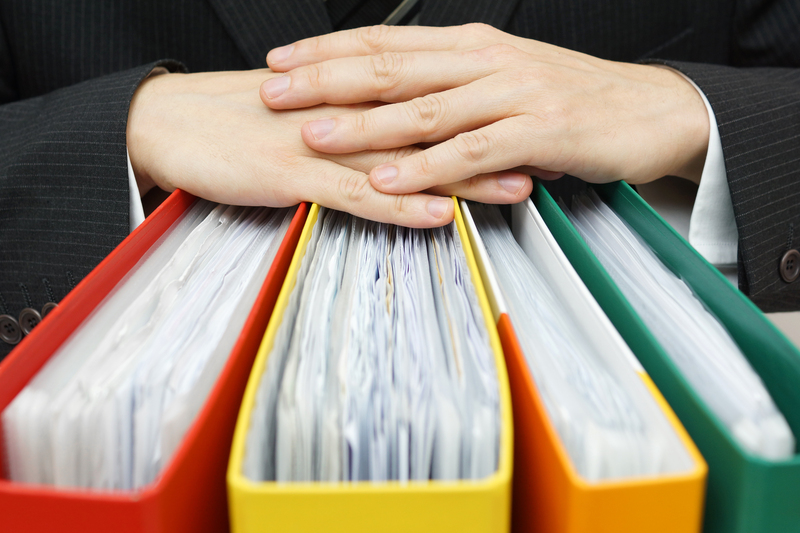Avoid Risks: The Importance of Hiring Experts for Piano Relocation
Posted on 21/06/2025
Avoid Risks: The Importance of Hiring Experts for Piano Relocation
Moving a piano is an intricate task that requires skill, expertise, and precision. Far from being just another piece of furniture, a piano is a delicate and valuable musical instrument that can sustain irreversible damage if not handled with care. The importance of hiring experts for piano relocation cannot be overstated, as professional movers have the training and resources needed to ensure a safe, efficient move. In this comprehensive article, we explore why trusting piano moving specialists is the best decision for preserving the integrity, sound, and value of your cherished instrument.

Why Piano Relocation is Different from Ordinary Moves
Pianos are unique in many ways, which makes their relocation a complex process. Standard movers may excel at transporting furniture and boxes, but when it comes to handling a piano, special expertise is required.
-
Sheer Size and Weight:
- Grand pianos can weigh between 500 to 1,200 pounds.
- Upright pianos typically weigh 300 to 800 pounds.
-
Delicate Components:
- Pianos have thousands of moving parts.
- Their strings, pedals, and hammers are sensitive to vibrations and shocks.
-
Irregular Shape:
- Pianos are not only heavy, but their odd shapes make lifting and maneuvering challenging.
- This increases the risk of physical property damage and personal injury.
It is clear that relocating a piano is not a straightforward process and requires the precision offered only by professional piano movers.
The Hidden Risks in DIY Piano Moving
Many people consider conducting a DIY piano move to save money, but the risks involved are significant. Attempting to move a piano without adequate knowledge and equipment can result in:
- Severe physical injury to yourself or helpers due to sudden slips or falls.
- Damage to the piano's mechanics, soundboard, or finish.
- Damage to property, such as scratched floors, broken stairs, and dented walls.
- Insurance complications, as self-moves are rarely covered.
Given these dangers, the cost savings are rarely worth the potential expenses and emotional stress caused by accidental damage or injury.
Benefits of Hiring Professional Piano Movers
1. Specialized Equipment and Tools
Professional piano movers are equipped with the right tools to facilitate a seamless move. They use specialized dollies, padding, straps, ramps, and custom skid boards designed specifically for pianos. These tools not only make the move safer but also protect the instrument from potential harm throughout the process.
2. Skilled and Experienced Team
Piano moving experts bring years of experience to the table. They are trained to handle different types and models of pianos, from baby grands to uprights. Their expertise means fewer mistakes, faster moves, and a significantly reduced risk of injury or damage.
- Proper lifting techniques minimize strain and prevent accidents.
- Knowledge of piano construction allows for careful disassembly and reassembly when needed.
3. Comprehensive Insurance Coverage
Reputable piano relocation companies provide insurance that covers your instrument against loss or damage during transit. This invaluable protection offers peace of mind and demonstrates the company's commitment to professionalism and care.
4. Route Planning and Obstacle Handling
Experts thoroughly assess the moving environment before the process begins. This includes:
- Measuring doorways, stairs, and hallways for safe clearance.
- Identifying and managing potential obstacles, such as uneven floors or tight corners.
- Strategizing the best route for both safety and efficiency.
Such meticulous planning can only come from experience and specialized knowledge.
5. Protection of Property and Instrument
Nothing is more distressing than scratching a newly refinished floor or chipping a marble staircase while moving a heavy piano. Seasoned movers use protective covers and padding to safeguard both your property and your valuable instrument.
6. Ensured Tuning and Maintenance
Moving a piano inevitably affects its tuning. Many piano moving services offer post-move tuning and inspection to ensure that your instrument is performing at its best right after it arrives at its new location.
Key Considerations in Selecting a Professional Piano Moving Service
Not all movers are created equal. When choosing a service for your piano relocation needs, consider the following essential factors:
Reputation and Reviews
Look for companies with an outstanding track record and positive customer testimonials. Peer reviews provide valuable insights into professionalism, reliability, and customer service.
Certification and Insurance
Only hire licensed and insured piano movers. This not only assures skill but also protects you from financial liability in the event of unforeseen issues.
Service Availability and Flexibility
Professional movers should provide flexible scheduling to accommodate your timeline. Inquire about emergency or after-hours services if your move requires a strict timetable.
Cost Transparency
Request a clear, itemized estimate. Professional piano movers offer honest pricing structures without hidden fees, helping you budget accurately for your move.
After-Move Support
Select a company that provides post-relocation support, including tuning, minor repairs, and placement guidance.
Common Types of Pianos and Moving Challenges
Every piano type presents unique challenges for relocators. Understanding these can highlight why expertise is non-negotiable:
- Grand Pianos: Grand pianos have complex legs and pedals, a larger frame, and are especially heavy. These instruments require disassembly, custom crating, and special handling to protect the lid, keys, and soundboard.
- Upright Pianos: Though more compact, upright pianos are still heavy and susceptible to tipping. Their height and narrow frame require careful balancing during transport, particularly on stairs or uneven surfaces.
- Baby Grand and Console Pianos: These models are smaller but still require the careful disconnection of specific parts. Fragile surfaces and intricate internal mechanisms need gentle, expert handling.
Without proper skills, these unique requirements can result in costly, time-consuming mistakes.
Real-World Consequences of Amateur Piano Moves
Case Study 1: Costly Repairs
A homeowner, convinced that a group of friends would suffice, attempted to move an upright piano down a flight of stairs. A mishandled turn resulted in a cracked soundboard--resulting in a repair bill exceeding $3,000, nearly half the cost of a new upright piano.
Case Study 2: Permanent Injury
During an amateur grand piano move, a helper suffered a back injury, resulting in lost work days and ongoing medical treatment. The risks of physical injury during a piano move are significant, underscoring the necessity of experienced personnel.
Case Study 3: Home Damage
Improperly securing and padding a piano led to deep scratches along hardwood flooring and a gouged hallway wall. The total repair costs surpassed the price of a professional move.
Environmental Factors Affecting Piano Moves
Professional piano movers account for environmental factors that amateurs often overlook, such as:
- Temperature and Humidity: Pianos are sensitive to changes in climate. Rapid shifts in temperature or exposure to humidity can warp wood and affect tuning. Experts use climate-controlled transportation when necessary.
- Weather Conditions: Rain, snow, or ice presents hazards to both the movers and the piano itself. Professionals plan accordingly, using weatherproof packaging and extra personnel if necessary.
Understanding the Cost Structure of Professional Piano Moving Services
The price for hiring expert piano movers varies based on several factors:
- Distance of the move (local or long-distance)
- Type and size of piano
- Accessibility (stairs, narrow hallways, obstacles)
- Insurance and additional services (such as tuning)
- Required equipment (hoists, cranes, ramps)
Though the initial cost may seem steep, it is far outweighed by the potential for loss or damage when using inexperienced movers. Investing in expertise protects both your piano and your peace of mind.

Frequently Asked Questions About Piano Moving Experts
Q: Do I need specialty movers for digital pianos?
While digital pianos are less heavy and delicate than traditional pianos, using a moving company with experience in musical equipment is still advisable to avoid electronic and surface damage.
Q: How long does a typical piano move take?
The time varies depending on the size of the piano and complexity of the move, but most local relocations take 2-4 hours. Larger or more complex moves may take longer.
Q: What should I do to prepare my piano for moving?
Clear the moving path, secure or remove loose items, and communicate any special concerns to your movers. Professionals will handle the rest, including padding and securing your instrument.
Q: Is tuning necessary after a move?
Yes. Pianos are sensitive to movement and climate change, so tuning and inspection are highly recommended post-relocation.
Conclusion: Invest in Expertise to Avoid Risks in Piano Relocation
In summary, the importance of hiring experts for piano relocation cannot be emphasized enough. With the immense value--both monetary and sentimental--attached to your piano, trusting its care to professionals is the safest, smartest decision. Expert piano movers not only minimize risk, prevent injury, and protect your investment, but also provide peace of mind so that you can enjoy your instrument for years to come. Avoid the risks of DIY or general moving companies; insist on expertise for your next piano move.
Choose safety, reliability, and skill--choose professional piano relocation experts every time.



